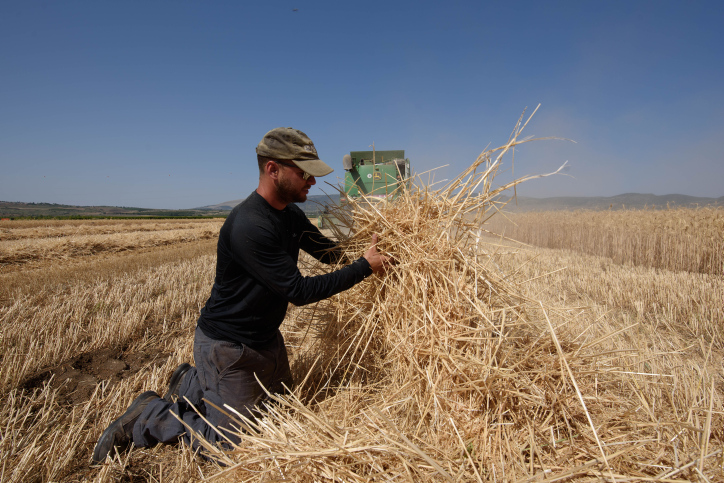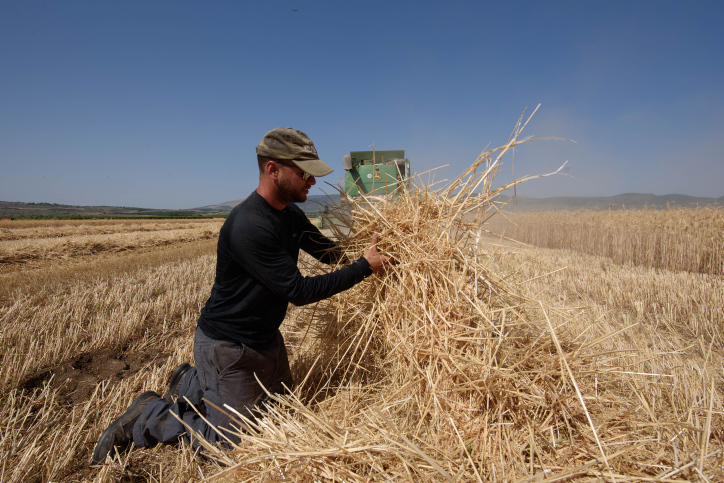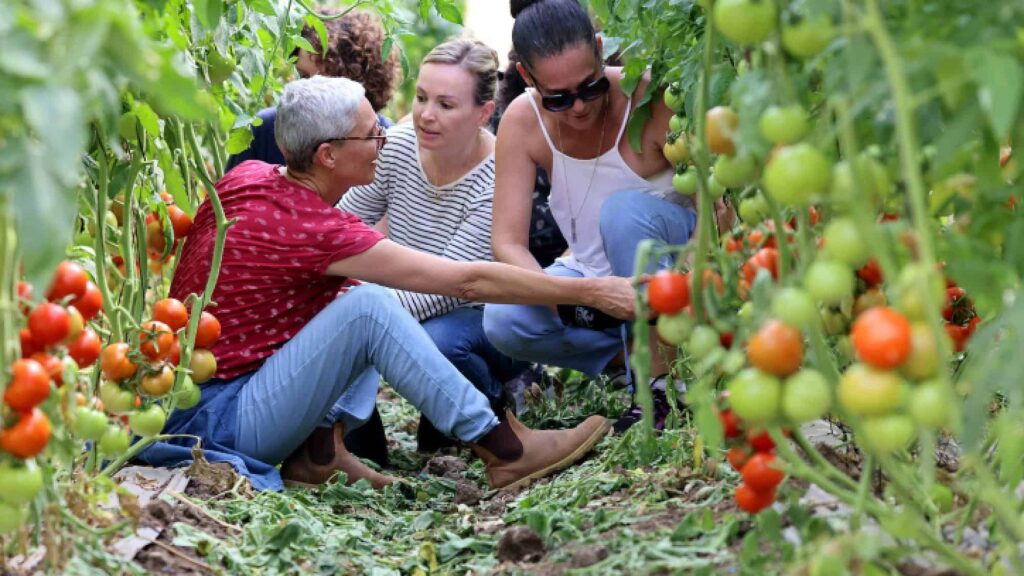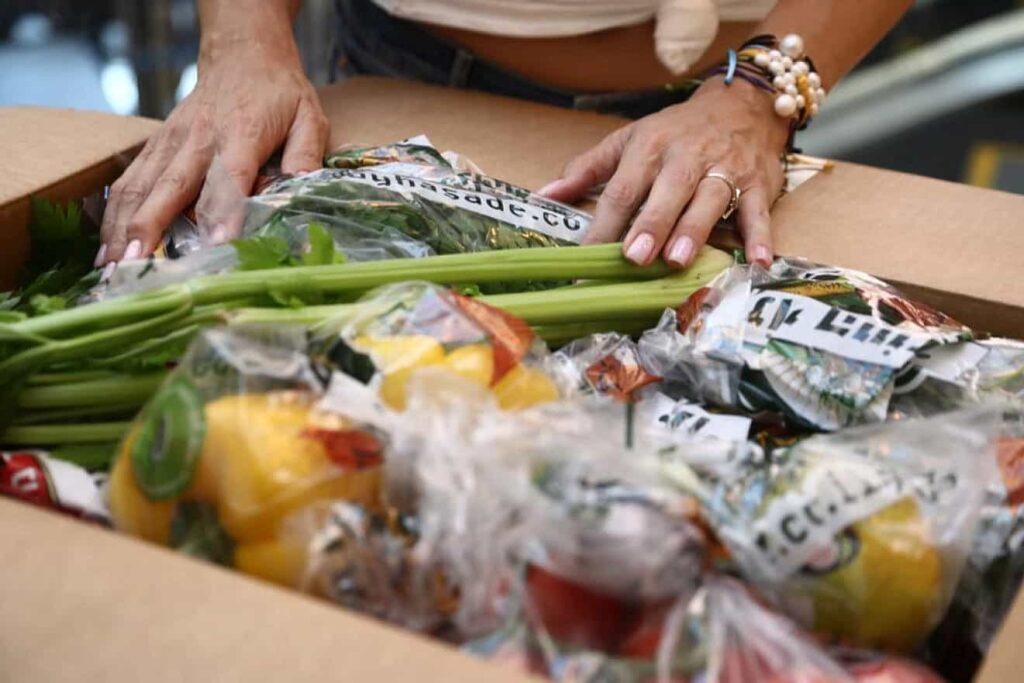
Facing crisis: Leket Israel highlights growing food insecurity amid war
Leket Israel’s 8th Annual Food Waste and Rescue Report in collaboration with the Ministries of Environmental Protection and Health reveals the extent of food waste in Israel
In 2022, excess healthcare expenditures due to food insecurity cost the Israeli economy NIS 5.2b ($1.5b) – about 5% of the total national expenditures on healthcare.
1.4 million people live in nutritional insecurity in Israel. The economic impact on the economy, alongside the numerous families displaced due to the war, will significantly exacerbate nutritional insecurity among vulnerable populations.
2.6 million tons of food were lost in 2022. With 30% of agricultural areas in Israel located in the Gaza Border Region and other conflict areas, the war will further increase food loss in agriculture due to a shortage of workers and restricted access to fields and orchards.
The Food Waste and Rescue Report published by Leket Israel, in collaboration with the Ministry of Environmental Protection and the Ministry of Health, and written by BDO, revealed that in 2022, an estimated 2.6 million tons of food were wasted, with an estimated value of NIS 23.1b (6.5b USD) annually. It is predicted that in the wake of this war, food waste will increase in scope, and there will be a noticeable shortage of food and a rise in prices. This will directly affect people living with food insecurity, and the population in general.

According to estimates published in the Leket Israel Report, in 2022, some 2.6 million tons of food were wasted, valued at NIS 23.1b ($6.5b). This is approximately 37% of the total amount of food produced in Israel. It is possible to rescue half of this food – over 1 million tons of food is fit for human consumption, valued at approximately NIS 8.1b ($2.3b). Further, the data indicates that 1.4 million people in Israel live in food insecurity, lacking consistent access to healthy food.
A special chapter included in the Report summarizes, for the first time, impacts of food waste on healthcare in Israel. The excess healthcare costs of food insecurity in Israel in 2022 were NIS 5.2b ($1.5b), representing about 5% of the total national health expenditures. An increase in the number of people who are unable to consume a healthy food basket will, in turn, further increase healthcare expenditures in Israel.
This reality, of more people experiencing food insecurity, alongside a greater volume of food that is being wasted even during routine times, highlights the need to implement a policy tool for rescuing food and distributing it for consumption by vulnerable populations to help them cope, especially during times of crisis.
Food insecurity is a chronic problem in the State of Israel, and it is expected to worsen due to the Swords of Iron War and its economic impacts. The war has caused, among other things, significant damage to the agricultural sector in Israel. It has increased the risk of food waste and drove up prices of agricultural products. This is in addition to rising unemployment, and entire populations that have been evacuated from their homes. All of this exacerbates food insecurity. It is expected that there will be an increase in the number of people lacking food in general, and especially in the number of people who are unable to consume a healthy food basket.

Food waste also has a high environmental cost. According to the Report, in 2022, 2.6 million tons of food were thrown away in Israel, (along the entire value chain from the farmers through the end consumers). The environmental cost of food waste is estimated at NIS 3.9b ($1.1b) per year. Food waste makes up about 1/3 of household waste and food waste is responsible for 6% of greenhouse gas emission in Israel. Reducing the amount of food waste will make it possible to save natural resources such as water, land and energy and will reduce greenhouse gas emissions, air pollutions and waste treatment costs.
Gidi Kroch, CEO of Leket Israel: “The eighth annual Food Waste and Rescue Report published by Leket Israel and BDO reveals, for the first time, the effects of food waste on the health of disadvantaged populations, including populations suffering from food insecurity, which costs billions of shekels in the state budget. The current situation, the largest crisis Israel has ever faced, further emphasizes the importance of independent food security for all the country’s citizens, and for disadvantaged populations in particular. Today, more than ever, we do not have the privilege of wasting good, high-quality, nutritious, and healthy food. Decision-makers in this country must formulate plans and provide a budget to create infrastructures for food rescue, which will allow us, in the coming years, to rescue and distribute all surplus food. This will establish food security for Israel and also save over NIS 13b ($3.7b) in the national budget for healthcare, environmental, and welfare expenses. When we do that, we will, as a country, take a big step forward.”
Guy Samet, CEO of the Ministry of Environmental Protection: “Preventing food waste and rescuing it instead will strengthen Israel’s resilience in routine and in emergency situations. The Ministry of Environmental Protection is currently working with Leket Israel to transfer surplus food to security forces, displaced populations, and those in need during times of crises, thereby preventing the wasting of resources and unnecessary waste disposal.”
Ronit Andwalt, Director of the Nutrition Division in the Public Health Department at the Ministry of Health: “Food insecurity in Israel is a phenomenon that is increasingly prevalent in recent years, and unfortunately, we expect it to rise even more in 2024. Food insecurity is often accompanied by choices of cheaper food, which generally include smaller quantities of essential food groups for a healthy diet: vegetables, fruit, whole grains, and proteins. As a result, food insecurity poses a risk factor for various health conditions, both in adults and especially in children. Obesity and related illnesses are more common among those experiencing food insecurity, impacting their ability to function, academic success, and social leadership. Additionally, treating diseases such as type 2 diabetes, high blood pressure, heart diseases, etc., incurs significant economic costs for the healthcare system. The current Report estimates the projected cost of treating diseases associated with food insecurity for the healthcare system. Rescuing healthy food and providing it to vulnerable populations can be a key factor in reducing the phenomenon and, in turn, reducing associated illnesses and healthcare system costs.”

(source: JNS)
Chen Herzog, Chief Economist of BDO and editor of the Food Waste and Rescue Report: “This war highlights the importance of food security during routine times and in emergencies. Last year, food valued at NIS 23.1b ($6.5b) was thrown away. The healthcare costs resulting from food insecurity reached NIS 5.2b ($1.47). This is in addition to almost NIS 4b ($1.1b) in environmental damage. The war is increasing these costs. More agricultural produce is being wasted, while at the same time people have less purchasing power to buy food, especially disadvantaged populations, due to the economic damage of the war.
The Swords of Iron War has damaged 30% of the agricultural areas in Israel, in the frontline conflict areas in the north and south. As part of the reconstruction policy that will follow the war, the economic resilience of Israeli agriculture must be strengthened. The scope of food waste must be reduced, during routine times and emergencies. And a national policy for food rescue must be formulated. Every shekel invested in food rescue generates an economic benefit of NIS 10.6 ($3), and therefore constitutes a national investment to strengthen the economy after the war.”
About Leket Israel: Serving as Israel’s largest food rescue organization, in 2022, Leket Israel rescued 1.9 million cooked meals from IDF army bases, hotels catering companies, and restaurants and 26,500 thousand tons (58 million pounds) of agricultural produce. All this rescued food was redistributed to 234,000+ needy people weekly through Leket Israel’s network of 265 nonprofit agency partners throughout Israel. For more information, please visit: www.leket.org/en.
For more information or to schedule an interview:
Shira Woolf – 054-2016651/shira@leket.org
The post Facing crisis: Leket Israel highlights growing food insecurity amid war appeared first on Israel365 News.
Israel in the News